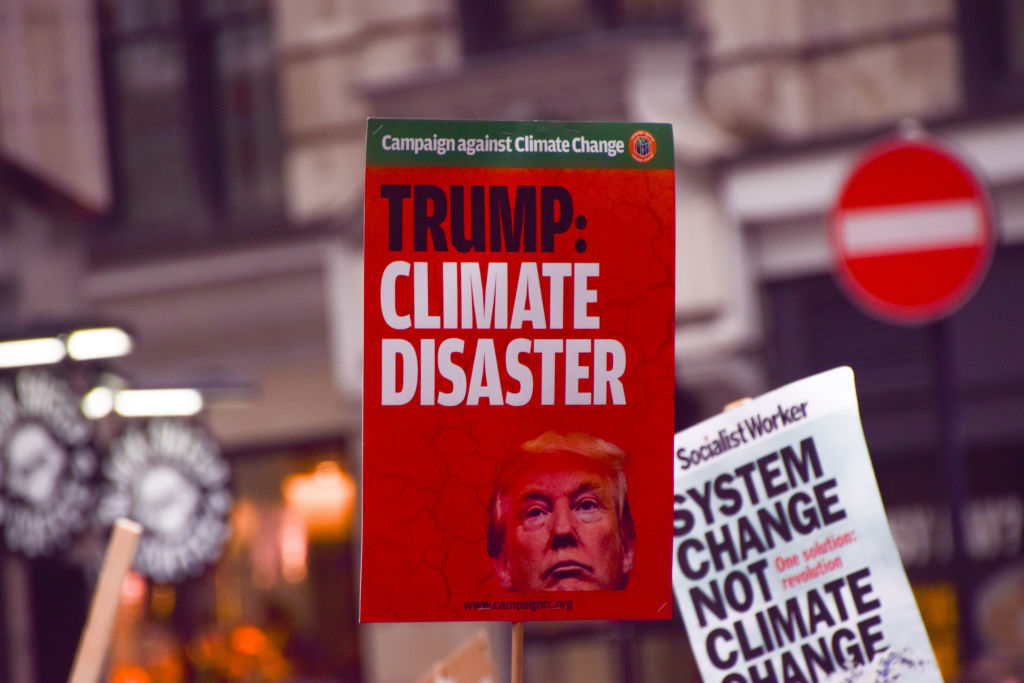More than 85 scientists from around the world have issued a scathing rebuttal to a recent U.S. Department of Energy (DOE) report that diminished the threat of climate change, arguing that it misrepresented data and cherry-picked numbers contrary to scientific consensus.
[time-brightcove not-tgx=”true”]
The Trump Administration’s July review of the impact of greenhouse gas emissions claimed that the threat of climate change is exaggerated and “less damaging economically than commonly believed.” Chris Wright, the energy secretary and former fossil fuel executive, hand-selected the five authors of the report, who all refute the consensus that burning fossil fuels is quickly heating the planet.
“This report makes a mockery of science,” said Dr. Andrew Dessler, one of the contributors to the 500-page report written by climate experts in response to the review. “It relies on ideas that were rejected long ago, supported by misrepresentations of the body of scientific knowledge, omissions of important facts, arm waving, anecdotes, and confirmation bias. This report makes it clear DOE has no interest in engaging with the scientific community.”
Read more: Here Are All of Trump’s Major Moves to Dismantle Climate Action
The scientists behind the report say the DOE report is being used to advance and justify the administration’s fossil fuel interests, at the same time as the White House has rolled back the Environmental Protection Agency’s abilities to fight against climate change in President Donald Trump’s second term.
The report found several instances where the DOE authors misrepresented information on climate change, such as claiming that rising carbon dioxide can have a “net benefit” to the U.S. agricultural economy, without citing the documented consequences of increased temperatures for that industry.
Errors in the DOE review included misquoting a climate report, providing incorrect explanations for scientific concepts, and confusing the results of various studies that the report cited.
The Department of Energy did not respond to TIME’s request for comment on the critiques it is facing.
Dr. Kim Cobb, director of the Institute at Brown for Environment and Society and co-author of the report, highlighted a “glaring omission” by the DOE of the human-caused warming of the ocean and its decimation of coral reefs through marine heat waves.
Cobb also noted that the DOE argued against rising global temperatures, citing the natural variability of weather over centuries.
“Maybe there was a time when that debate could be had, but that is no longer a tenable position,” Cobb told TIME. “From a scientific perspective, we have extremely robust lines of evidence pointing out that we are living through a period of unprecedented warmth.”
Cobb emphasized that one of the greatest threats of the DOE review is its potential to become a bedrock for future environmental policy. She described the credibility of the DOE’s review versus the scientific community’s rebuttal as “a feather on one side and 1,000 pounds of metal on the other.”
“It is really important that climate scientists stand up and be active stewards of their science in the public sphere. It’s part of our job. It’s our responsibility to the world, to taxpayers, to the next generations. That’s what we are charged with doing. And this may be the most important moment where we are called to do that,” Cobb said.
The scientists who responded to the DOE’s review argue that it was compromised from the beginning due to its “tiny team of hand-picked contrarians,” the absence of a peer review process, which is standard practice for a document of this volume, cherry-picked evidence and inaccurate citations.
“Normally, a report like this would undergo a rigorous, unbiased and transparent peer review. When it became clear that DOE wasn’t going to organize such a review, the scientific community came together on its own, in less than a month, to provide it,” said Dr. Robert Kopp, another contributor, upon its release.
Other organizations and scientists have refuted the DOE’s review, including the American Meteorological Society, which highlighted further flaws in the report and urged a correction of the findings by the agency.
Trump has taken several steps in his second term to dismantle government efforts to address climate change, including blocking state laws against climate change, expanding oil and gas production, and phasing out FEMA, the agency responsible for responding to climate-related disasters, which have become more frequent with rising global temperatures.
In his first term, Trump rolled back more than 125 environmental policies. Columbia University’s Climate Backtracker identifies steps taken by the administration to scale back climate mitigation measures, and has identified over 200 instances in Trump’s second term.

